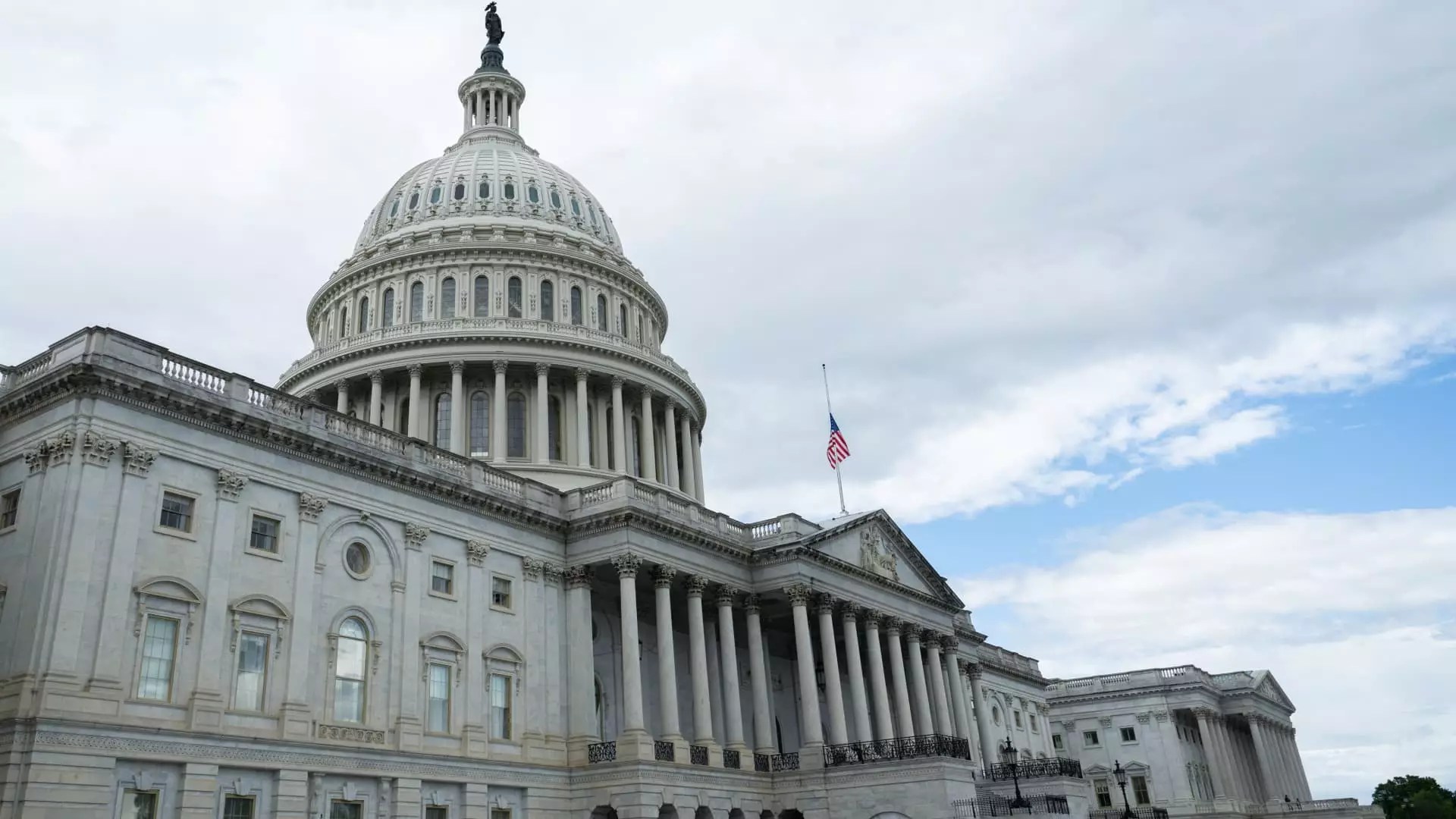The recent tax cuts spearheaded by House Republicans have ignited a fiery debate about fiscal responsibility and the future of the U.S. economy. While the proponents of these cuts argue that they will spur growth and stimulate the economy, the reality is far more troubling. A ticking time bomb is embedded in the legislation: a potential increase in the national debt by an estimated $3.1 to $3.8 trillion over the next decade. This isn’t just a number to be discussed in academic circles; it translates directly into the economic well-being of every American citizen. The concern here is not solely about the staggering figure but about what this debt means for the average American and the broader implications for financial markets.
This tax bill, instead of fostering economic opportunity for all, appears to disproportionately benefit the wealthy. By slashing taxes and, at the same time, gutting crucial safety-net programs like Medicaid and food assistance, the legislation represents a misguided attempt to balance fiscal generosity with fiscal prudence. Republicans may champion their party’s commitment to low taxes, but in doing so, they jeopardize the stability of America’s financial future, risking higher taxes and lower services for the very citizens they profess to protect.
Debt and Its Dreadful Consequences
To the casual observer, the figures involved may seem abstract—mere challenges in political negotiation. However, the growing national debt has real consequences. With interest payments on U.S. debt now surpassing national defense spending, the math grows increasingly dire. Households may think they are distanced from these lofty political conundrums, but economists warn otherwise. The link between national debt and personal finance is closer than many would like to believe.
High national debt means higher interest rates for individuals looking to finance homes or cars. The dire consequences of higher rates don’t just affect affluent investors; they hit everyday Americans hard, particularly first-time homebuyers seeking affordable mortgages. Mark Zandi’s analysis indicates that an increase in the debt-to-GDP ratio will inevitably lead to greater interest rates, with the potential for a significant rise in 30-year fixed mortgages from an already strained 7% up to 7.6%. Such reality could push the dream of homeownership further out of reach for those on the lower end of the economic spectrum, ultimately widening the wealth gap.
The Role of Consumer Confidence
Even more unsettling is the manner in which rising debt influences consumer confidence. Many fail to acknowledge that when the national debt grows, it creates fear amongst investors, impacting their willingness to invest in government securities. Under the Republican tax plan, this fear could significantly diminish demand for U.S. Treasury bonds. The market is already jittery, suggesting that the administration’s fiscal policies provoke concerns about ultimate repayment capabilities. As noted by Rep. Thomas Massie, investors—unlike lawmakers—don’t indulge in “fantasy math.” They see the reality glaring at them: borrowers may become reluctant if they suspect the borrower’s solvency is in jeopardy.
The consequences here are not abstract but incredibly tangible, with the potential for bond yields to spike as demand wanes. The immediate effect of this would be increased rates for long term loans like mortgages and auto financing, placing additional burdens on consumers whose purchasing power is intrinsically linked to interest rates.
Repercussions for Future Investment and Stability
Not only does this recklessness threaten the average consumer, but it also leads to dire implications for the entire investment landscape. Similarly to how rising interest rates affect the purchasing power of everyday Americans, they also serve to erode the value of existing investments in government bonds. Current bondholders see their portfolios declining in value as interest yields climb in response to increased debt; it is a painful cycle of devaluation not easily escaped.
As the country has witnessed in past financial crises, a general reluctance to invest can destabilize markets further. Those who champion these tax cuts seem to be dancing on the precipice, unaware of the far-reaching consequences. Short-term gains for the wealthy could devolve into long-term hardship for a broad swath of citizens, eroding not only personal dreams but the very fabric of economic stability.
The GOP is pushing through policies that seem out of touch with the realities faced by everyday Americans. Instead of enacting meaningful reform that benefits all sectors of the economy, they opt for bold tax reductions that ultimately add layers of debt and risk. This debt—when combined with muted wage growth and higher living costs—doesn’t just jeopardize future government expenditures but threatens the prosperity of future generations. The math is clear, and the time for a reckoning is fast approaching.


Leave a Reply